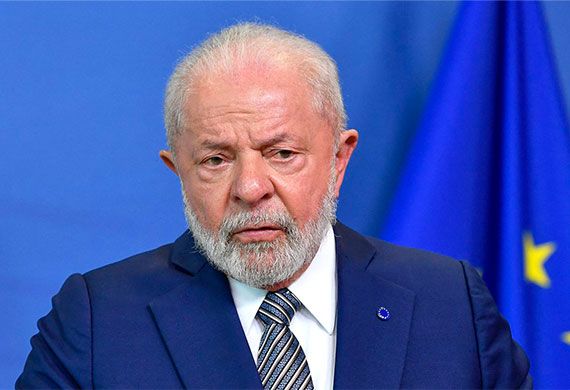Luiz Inacio Lula Da Silva, President, Brazil
By Global Leaders Insights Team

Luiz Inácio Lula da Silva or Lula, became President of Brazil in January 2023 and serves for his third non-consecutive term. Lula became famous as a founding member of the Workers' Party (PT), supported social justice and called for equality in wealth and care for the environment. Lula wants to strengthen Brazil’s independence, build good relationships with other nations and promote inclusive growth.
The U.S. trade war of 2025 has led Brazilian President Luiz Inácio Lula da Silva to stand firm but also try to ensure Brazil’s cooperation with other countries. After Donald Trump imposed 25 percent taxes on steel and aluminum from Brazil, Lula said that Brazil would retaliate in kind. He said that as long as the U.S. imposed taxes on Brazilian exports, Brazil would put tariffs on American goods. At the same time, he showed that dialogue and diplomacy were important and that respecting each other and working well together can benefit the two countries. Multilateralism was something Lula stood for and he criticized U.S. protectionist policies, stating they endanger global free trade and could increase prices for consumers while disrupting the U.S. and Brazil’s economies.
In response to the U.S. actions, Lula has pushed to build stronger relationships with worldwide partners, mainly China which demonstrates a trend toward working together with countries from the South and not just the West or countries with dominant roles. Under this new strategy, Beijing is engaging in many forms of economic partnership in agriculture, mining, and renewable energy. Also, if the U.S. tariffs are deemed unlawful under international trade agreements, Lula said Brazil might bring the concern to the World Trade Organization. In addition, he argued that the U.S. is doing well with trade with Brazil and that imposing tariffs is singling out Brazil for no good reason. His approach has made sure Brazil is both approachable for talks and committed to maintaining its independence and financial stability. A careful and forceful approach by the administration underlines a bigger goal for economic strength, better global ties, and steady diplomacy in an evolving trading system.
.jpg)